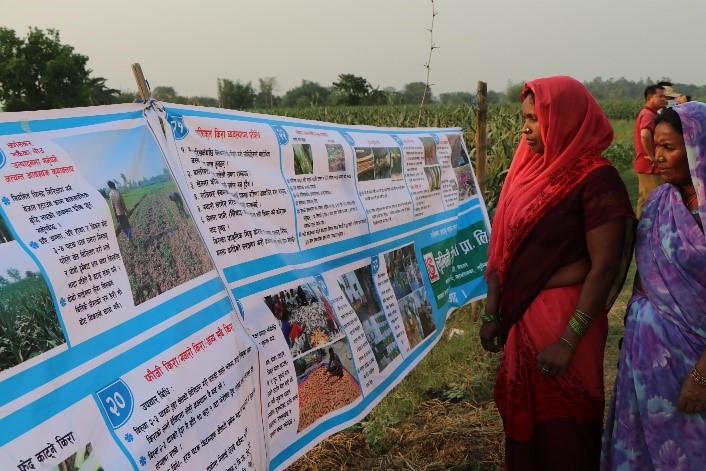Nepal is an agricultural country, where the sector provides the major source of income for half the population. Despite this, the sad reality is that the country is not able to produce enough crops to meet its needs, and major grains like rice, maize, and cereals are mostly imported.
One factor influencing this is an aging population of farmers, alongside decreasing interest in agriculture among the country’s youth. Many young people do not see agriculture as a viable option for employment, opting instead for work opportunities outside the country. However, there are still some youth who see agriculture as a profitable business, like Pradeep Morya.
“It is better to work hard in your home country rather than going abroad and working tirelessly every minute and hour,” says Morya, a 24-year-old farmer from Banke, Nepal, who finds happiness in living close to his family and helping to support national food security. “I love being in the field,” he explains. “I have cultivated spring maize on one hectare. My day-to-day business is to provide care to the spring maize along with pumpkins and beans that I have added for additional income on a small plot of land.”
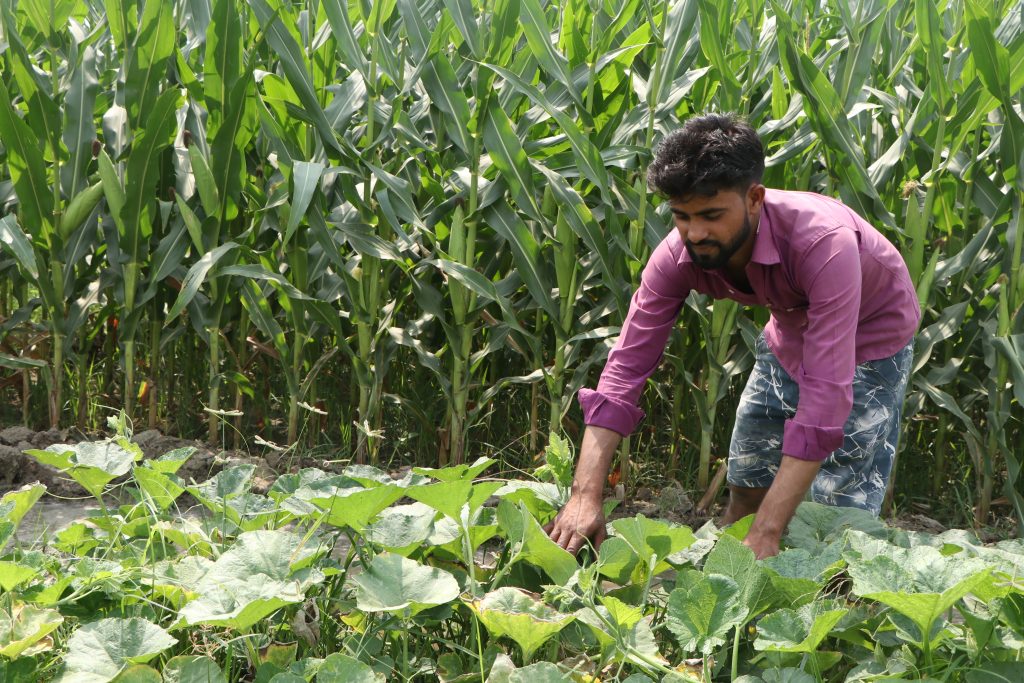
Working alongside his eldest brother, Morya has cultivated 30 kattha of land (equivalent to 0.36 hectares) using the spring maize varieties Pioneer 1899 and DK 9108. His brother, a member of Mahatarkari cooperative in Duduwa, western Nepal, has been providing him with the knowledge and expertise needed for maize cultivation.
Mahatarkari is one among 50 cooperatives working in partnership with the Nepal Seed and Fertilizer project (NSAF), which is implemented by CIMMYT. NSAF works with the cooperatives to provide technical knowledge and training to farmers, to hone their potential and support them in the adoption of modern technologies which can improve their livelihoods. After participating in programs organized by NSAF, Morya makes sure that the suggestions he receives — on soil preparation, weed management, harvesting, and more — are implemented in his field.
Returning to the family farm
A few years back, the situation was different. Like many youths in the country, Morya also went abroad to try his luck on the international job market. He worked hard for two years in Malaysia but was forced to return to Nepal during the COVID-19 pandemic.
“I had imagined my shining future abroad. However, when I reached there, the reality was different,” recalls Morya. “I returned to my own country just before the lockdown in April 2021 with some small savings. Upon my arrival in Nepal, I was clueless about my future. I dropped my education after grade five. With no educational qualifications and skills in hand, it was difficult to get a decent job.”
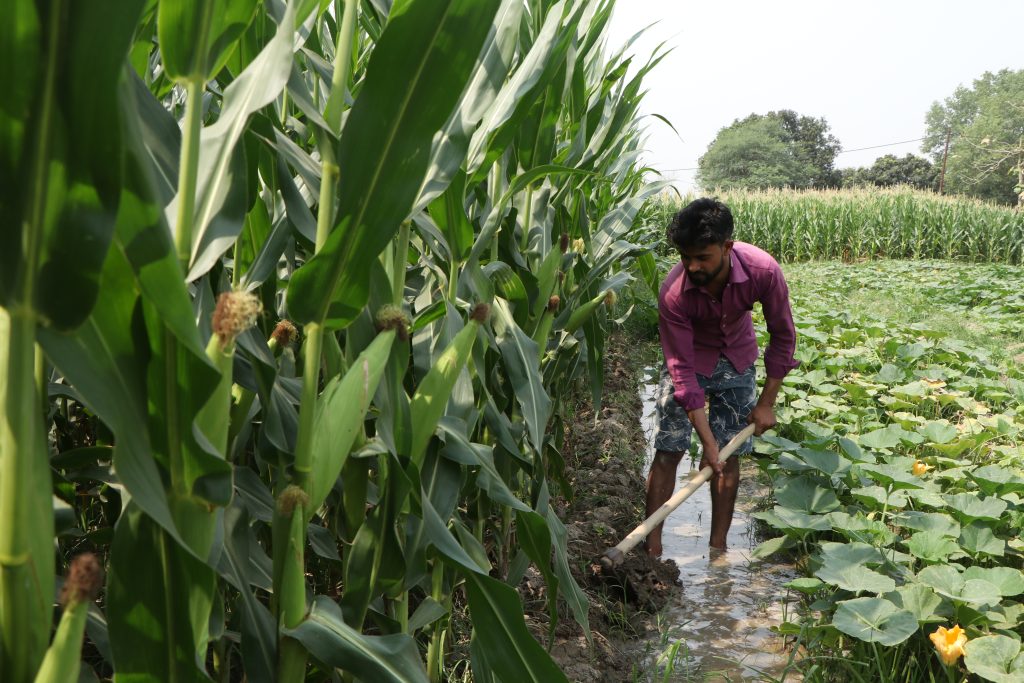
Since the country was in lockdown, Morya chose to stay at home and support his family on the farm. It was here that his eldest brother guided him into farming, and Morya soon learned the knowledge needed to run the farm and began earning money from it. This attracted him towards farming as a longer-term career option, and he has now discovered a prosperous future in agriculture.
“Agriculture needs continuous effort,” he says. “With the support of technology, it is easy and efficient to work. I work every day so that I can reap crops on a large scale to make a profit. I manage weeds, irrigation, and control pests.”
“I also have livestock. I get adequate fodder for my cows and buffalo from weeds and from the spring maize. I sell milk in the market. In addition to this, I also make sure to produce off-season vegetables so that I receive a decent price for additional income.” With the support of his family, Morya has recently purchased an e-rickshaw, which he uses to transport and sell his produce.
To further support his endeavors, Morya has also been participating in Nepal’s Maize Commercialization Network and using the Geo Krishi mobile app to learn about current market prices. “Before knowing about the commercialization of crops, it was hard to receive good amounts from buyers,” he explains. “Now, I make a call to the local retailers and buyers to learn the best value of my grain. Sometimes I also explore the market. Then, I analyze the rate and sell my maize.” He uses a similar system for his off-season vegetables, selling either in the local market or directly to consumers for a premium price. “I make a saving of around 1500 Nepalese rupees (approximately US$ 11) per day,” he says.
A prosperous life
With the profits from his agricultural business, Morya has been able to fulfill his dream of purchasing a bike, as well as contributing to the construction of a new eight-room house, where his family is now living comfortably. “I love to roam on my bike with my friends in the evening. I also take my mother for a ride,” says Morya with a bright smile. “Now, I have a dream to live a prosperous life with my family.”
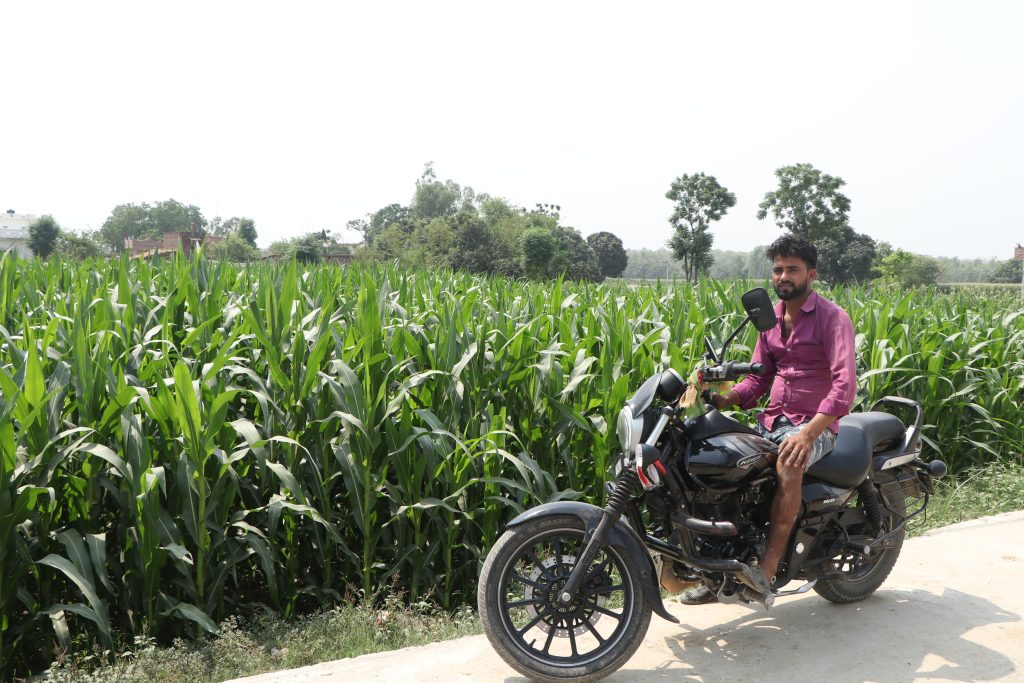
Thanks to the support provided by the NSAF project with generous funding from USAID, young people like Morya can pursue a better life for themselves and their families. Agricultural training programs have not only helped young people fulfill their basic needs, but also to achieve their dreams. It is hoped that ongoing efforts to empower farmers through science and innovation will continue helping young farmers like Morya break the chain of unemployment, for both their own benefit and that of Nepal.
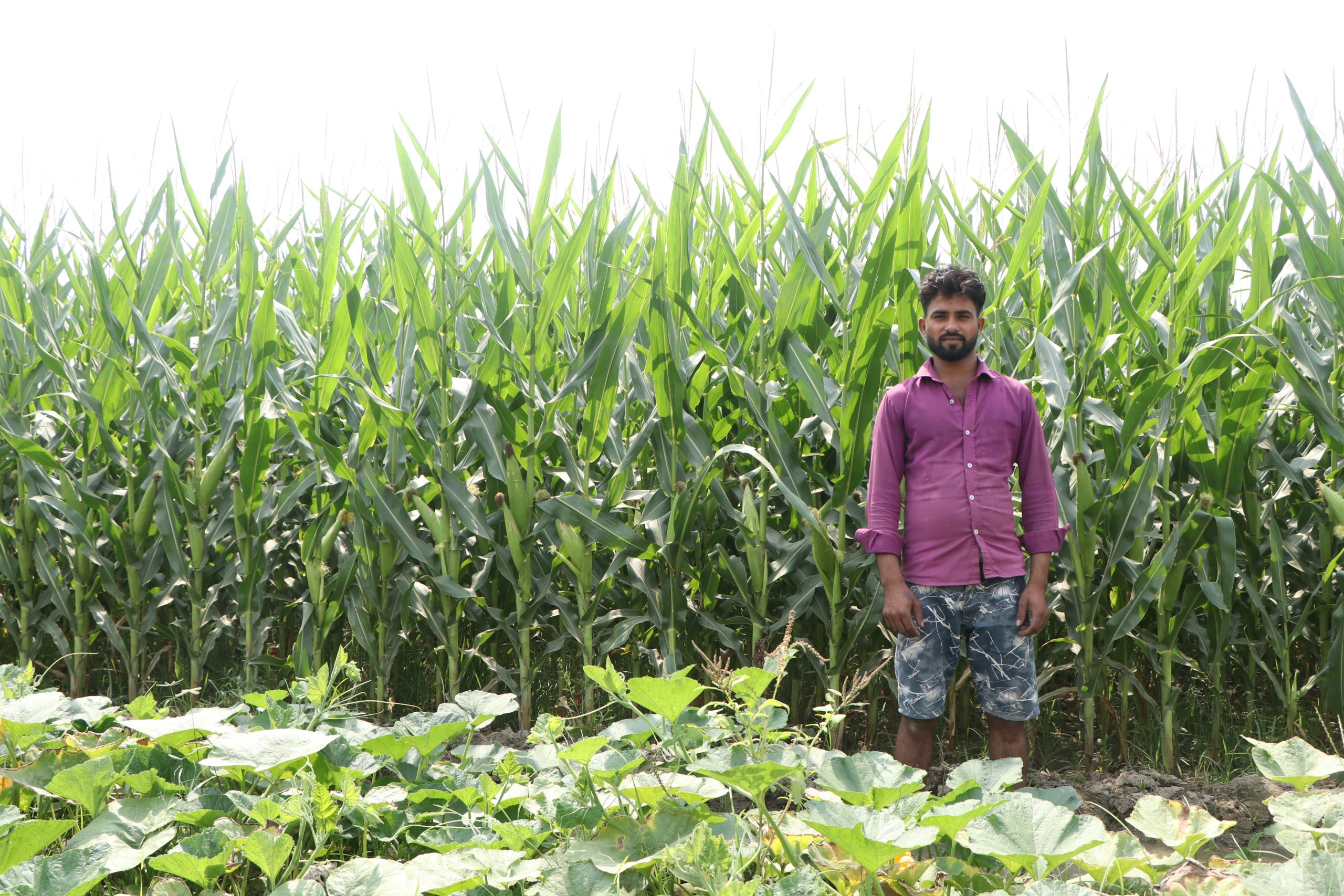
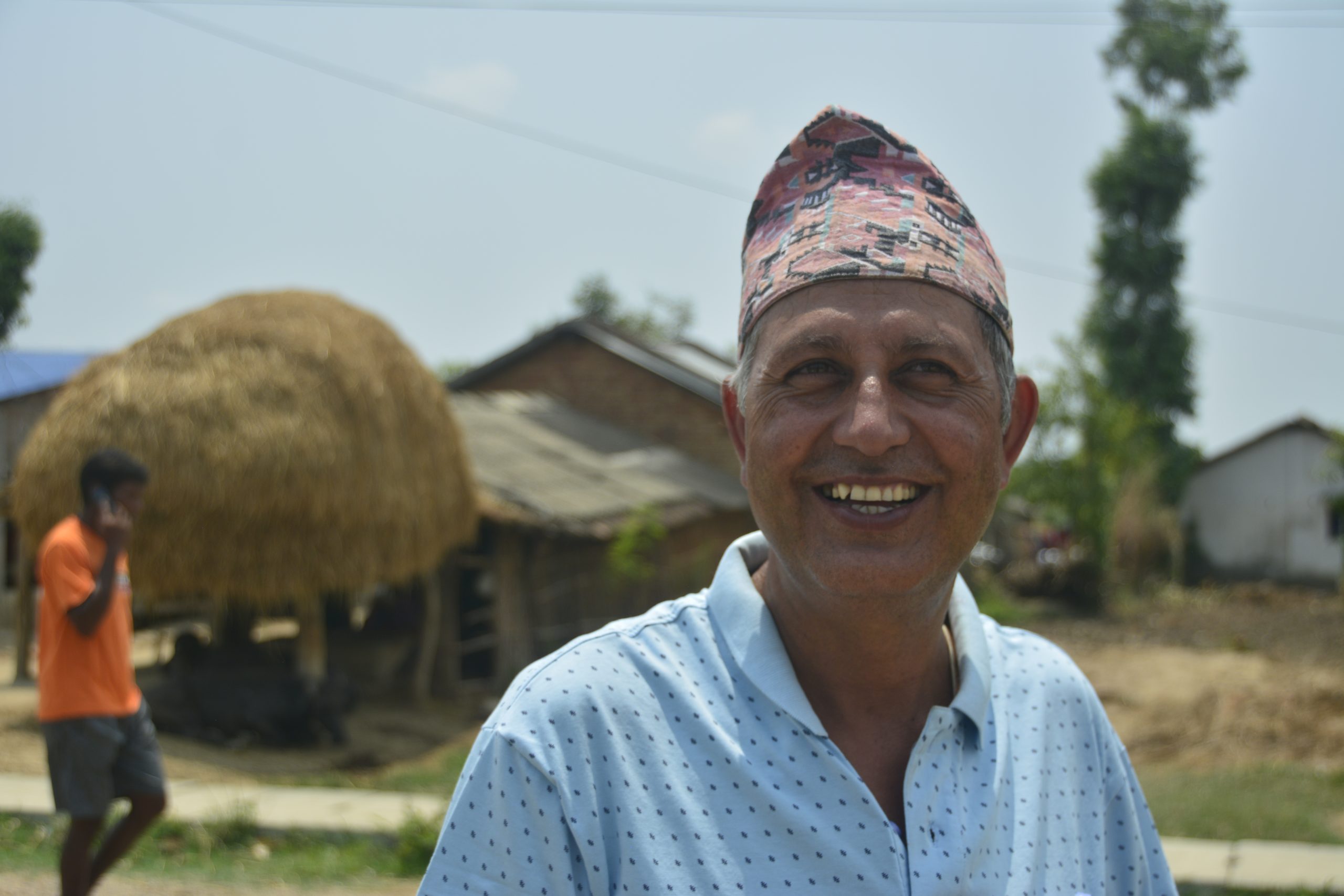
 Capacity development
Capacity development 
